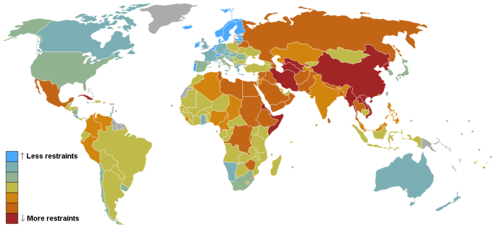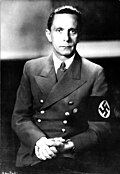Freedom of the press

Freedom of the press is a promise by a government not to punish journalists (and other people who report the news) for doing their job without censorship. It is an idea like freedom of speech: it lets people express their opinions or beliefs. Many countries have laws or constitutional amendments protecting freedom of the press. The word "press" in the phrase comes from the printing press.
Restrictions
Like with freedom of speech, freedom of the press does not protect everything that a journalist writes. A journalist can be sued for libel, which is publishing false and damaging claims about a person. Publishing copyrighted material is not legal in many countries. Writing about state secrets, like military plans, weapon designs, or other classified information is almost always illegal.
Freedom Of The Press Media
Cumhuriyet's former editor-in-chief Can Dündar receiving the 2015 Reporters Without Borders Prize. Shortly after, he was arrested.
Georgiy Gongadze, Ukrainian journalist, founder of a popular Internet newspaper Ukrainska Pravda, who was kidnapped and murdered in 2000.
First page of John Milton's 1644 edition of Areopagitica
Joseph Goebbels' Ministry of Public Enlightenment and Propaganda was a driving force of suppressing freedom of the press in Nazi Germany.
Protest outside the Russian Embassy in Berlin demanding the release of Russia's political prisoners, including journalists Ivan Safronov and Maria Ponomarenko, 2024
- Simion, Digi 24.jpg
AUR leader George Simion answering a question from a Digi 24 reporter in Cluj-Napoca, 2025
Turkish journalists protesting imprisonment of their colleagues on Human Rights Day, 2016








